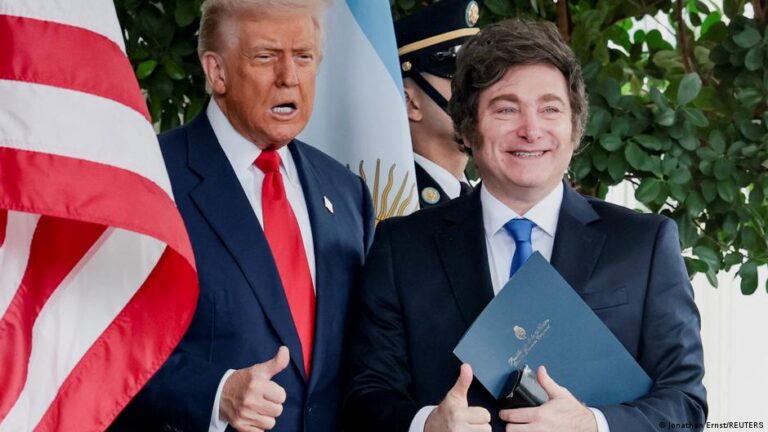Brazil’s President Luiz Inacio Lula da Silva insisted this week that there are no remaining obstacles to signing the EU–Mercosur trade agreement next month after more than two decades of negotiations.
Speaking on the sidelines of the G20 summit in South Africa, Lula said the deal would represent “possibly the largest agreement” in global trade, citing both blocs’ nearly 722 million population and $22 trillion in gross domestic product (GDP).
But while EU trade representatives consider the Mercosur pact to be a done deal, France and Hungary are calling for last-minute changes, citing risks to their agricultural sectors.
And while the long-sought pact remains precarious, the US is stepping up efforts to sign trade deals of their own with several countries in the region.
US accelerates Trump trade strategy
In recent weeks, Washington has announced or negotiated framework agreements with Argentina, Guatemala, El Salvador and Ecuador, as part of the Trump administration’s push to shift trade balances and curb China’s growing influence.
“On a geopolitical level, these agreements strengthen the US presence amid growing competition with China in infrastructure, technology and critical minerals,” Vladimir Rouvinski, a political scientist at ICESI University in Cali, Colombia, told DW.
Rouvinski said closer trade ties with Washington would give Latin American countries “greater room to maneuver, access to technical collaboration and opportunities to diversify production.”
He believes the deals could anchor Latin America within the US’s shifting economic priorities and give the region a stronger footing in the broader global realignment.
China pulls ahead in Argentina
In the race for geopolitical influence in Latin America, China is currently outpacing rivals from the US and the EU, says a recent report by the German foreign trade and investment agency (GTAI).
In Argentina, for example, China recently replaced Brazil as the country’s biggest trading partner, with Chinese imports of Argentine goods — especially soybeans and beef — rising sharply, while Argentina’s imports from China also expanded.
Over the same period, the US slipped to fourth place, behind Brazil and the European Union, helping explain Washington’s renewed interest in closer ties with Buenos Aires.
Moreover, Latin America’s exports to China rose 7% overall, driven largely by higher shipments of meat and soybeans and rising copper prices, according to the Economic Commission for Latin America and the Caribbean (ECLAC).
According to ECLAC’s latest annual report on international trade, most countries in Latin America and the Caribbean face lower tariffs in their US trade than several of Washington’s main trading partners, particularly from Asia.
“This situation creates opportunities for trade diversion in favor of the region’s exports, in sectors such as clothing, medical devices and agro-industry,” the ECLAC wrote.
US seeks strategic allies in Latin America
Diana Luna of the liberal-leaning Friedrich Ebert Foundation in Germany told DW that the Trump administration is resorting to a familiar approach, notably “the classic ‘carrot and stick’ method” to bolster its trade position in Latin America.
Countries perceived as cooperative on migration and security — such as Guatemala, El Salvador and Ecuador — or politically aligned states like Argentina are being given favorable treatment, Luna said, adding that new deals reinforce these countries as strategic partners and signal a pushback against China.
“In Argentina, they [agreements] represent the first concrete step following the Trump administration’s financial engagement. They encourage investment, especially in the pharmaceutical sector, and send a clear message to the markets: Argentina is worth investing in — an important signal for leaders like [Argentinian President Javier] Milei, who rely on foreign capital to spur growth.”
However, Argentina’s libertarian leader Javier Milei must now tread a narrow path. The new US trade frameworks may not be fully compatible with Mercosur rules, raising the possibility that the country might have to choose between the US approach and its Mercosur commitments.
Such a choice could have “significant repercussions for Brazil and trade across the [Mercosur] bloc,” Luna warned.
Marcela Franzoni, an international relations expert at Ibmec University in Rio de Janeiro, agreed, telling Brazil’s leading economic daily, Valor, recently one immediate effect could be the erosion of Brazil’s market share in Argentina, as lower-cost US goods gain access.
Europe, meanwhile, remains stuck waiting in the wings — partly of its own making, said Luna, adding that EU negotiators still have “extensive lists of demands” while bilateral US deals offer “quicker and more tangible results.”
This article was originally written in German.


